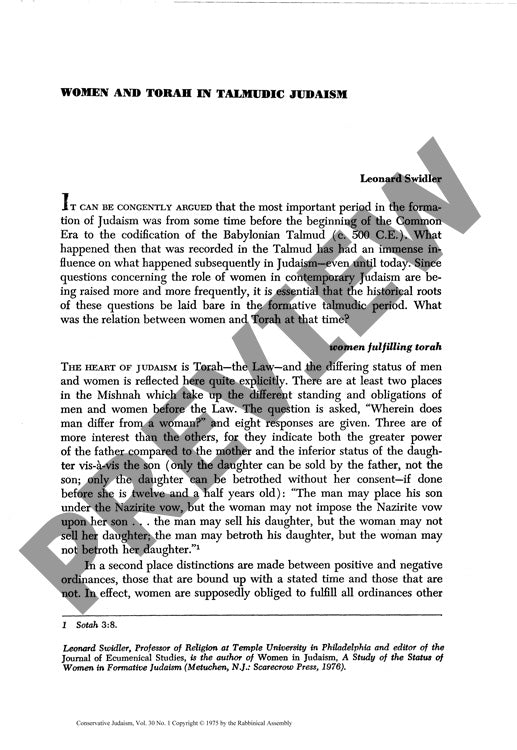Women and Torah in Talmudic Judaism
Couldn't load pickup availability
Women's systematic exclusion from Torah study and religious leadership emerged as a defining feature of Talmudic Judaism between the pre-Common Era and 500 C.E., when the Babylonian Talmud was codified. Through analysis of primary sources including the Mishnah, Tosefta, and both Palestinian and Babylonian Talmuds, a clear pattern emerges: women were exempted from time-bound positive commandments, barred from active synagogue participation, and effectively prohibited from Torah study - the cornerstone of Jewish religious life. Rabbi Eliezer's influential pronouncement that teaching daughters Torah was equivalent to teaching them lechery exemplified the prevailing rabbinic attitude. While these restrictions were often justified as accommodations for women's domestic duties, they created a hierarchical structure where women's religious obligations carried diminished spiritual merit compared to men's. Even exceptional cases like Beruria, the only woman whose halakhic opinions garnered serious scholarly consideration, ultimately reinforce rather than challenge this pattern of exclusion. The rabbinic codification of gender-based religious inequality during this formative period established precedents that profoundly shaped subsequent Jewish practice and continue to influence contemporary debates about women's roles in Judaism.

More Information
-
Physical Description
-
Publication Information
Published 1975
ISBN
-
Publication Credits
Leonard Swidler

